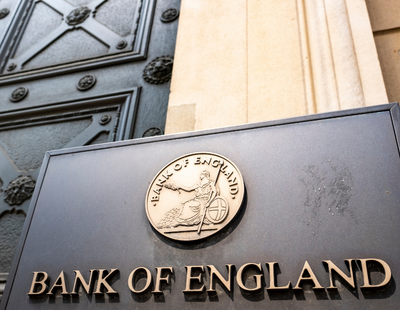It informed me that September 1 is National Gyros Day. Hooray! But as much as I enjoy them, I’m not sure we require an entire day to pay homage to the delicacy?
Still, I suspect this is a consequence of the fact that there seems to be a day designed to celebrate pretty much everything these days.
Which brings us to today, August 25 - which is otherwise known as the busiest day to move of the year.
According to the HomeOwners Alliance, the last Friday in August is the day of the year people move in the largest numbers.
Call me old-fashioned but the only place I’d like to be moving on the last Friday in August is from the pool to the sunlounger but given the awful August weather there’s not much chance of that.
But there’s no doubt activity does pick up, and it will be interesting to see how this year’s figures compare with years gone by.
I expect transactions will be lower but I’d also expect them to be steady.
Property is selling right now. And despite the challenges in the market, demand remains high and deals are there to be done.
One of the biggest questions we are all asking ourselves right now is what is likely to happen to interest rates. And there’s no doubt this will be a key factor in how the next few months play out for the market.
We live in a topsy-turvy world.
We’ve seen mortgage rates increase before The Bank of England raised the base rate and then reduce when they expected better figures.
Inflation is down to a much lower level. But they are still dreadful numbers.
The balancing act between economic feast or famine will continue into 2024, and the next few months are crucial.
Inflation looks set to fall although fuel prices are a worry, increasing as they are.
We may have dodged the bullet of a further rise this year, The Bank will want to see the effect of the last 15 rises first – hopefully.
There will be less pressure to increase next year if current factors continue but we should not expect to see a reduction from the current rate until at least the second half of 2024, if then.
There are still many economic uncertainties, especially in property. 2024 looks set to be a very challenging year.
Right now the United Kingdom finds itself amidst a profound housing crisis that looks to be made worse by the recent downturn – landlords are selling, developers are mothballing sites and affordability has worsened for anyone who needs a mortgage. Rents are at an all-time high.
This crisis has given rise to an unprecedented shift, reshaping not only our living arrangements but also the ways we function and envision the future. The depressing reality is that fewer and fewer individuals can access high-quality housing that aligns with their requirements and many have lost any hope of doing so in the future – so called ‘guppies’ who have ‘given up on property’.
However, the consequences of this crisis go beyond mere affordability concerns – the gap between rich and poor, owner and tenant has long been discussed, but now there is a new dimension, the disparity between older property owners and their younger tenants.
Nearly 2m buy-to-let properties are currently owned by 620,000 landlords aged over 65, with a further 2m properties owned by landlords aged between 55 and 64. -
Consider the stark shift: in 1991, a substantial 67% of individuals aged 25-34 owned their own homes.
Fast forward to today, and this percentage has dwindled to a mere 11.2% (a dreadful 0.7% for those under 24). This plummeting rate is hardly surprising given the surge in asking prices and the snail’s pace of wage growth.
Statistics reveal that the average house price soared to £290,000 last year, a staggering figure exceeding ten times the average UK salary of £26,000.
Right now three million tenants are younger than 44, up nearly 300,000 in 10 years. Wage stagnation and the growing disparity between earnings and housing costs have driven a considerable portion of the population to allocate a substantial amount of their income toward securing a roof over their heads, preventing them from saving a deposit to buy.
It means resentment has grown toward older generations profiting, even unintentionally from the crisis.
Unless and until these are addressed and the property market loses its current age bias, that resentment will continue to grow.
In fact, this time next year I reckon we could see those Gyros' binned and swapped for “I'm Aged Under 30...And Wish I Could Afford To Own A House Day”.












.png)


.png)




Join the conversation
Be the first to comment (please use the comment box below)
Please login to comment